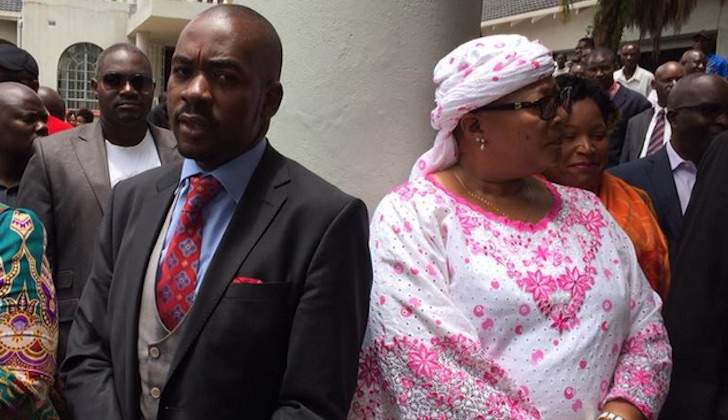On March 31, 2020, the Supreme Court delivered a unanimous ruling in the seemingly interminable battle over stewardship of the opposition Movement for Democratic Change (MDC). In the case of MDC and Others vs Elias Mashavira and Others SC 56/20, the Supreme Court confirmed the ruling of the High Court against Nelson Chamisa, casting further doubt over the future of the main opposition.
This post unpacks the judgment and its likely implications.
On May 8, 2019, Justice Edith Mushore ruled that the appointment of Chamisa and Elias Mudzuri to the positions of vice-president was contrary to the MDC constitution. The MDC was ordered to hold an extra-ordinary congress under the stewardship of Thokozani Khupe as acting president. The MDC then exercised its right of appeal.
Numerous grounds of appeal were cited and these have been detailed previously. In a nutshell, the MDC took issue with all findings of the High Court from the ruling that the vice-presidents were improperly appointed to the requirement that it holds an extra-ordinary congress.
The MDC insisted that a wrong version of its constitution had been used, incorrect interpretation of its reference to deputy presidents had been rendered and asserted that the application should have been dismissed.
classifieds.co.zw Ads
Property Sales, Rentals
Electronics
Services
Building Supplies
Cars & Vehicles
Vehicle Parts & Accessories
Health, Fashion & Beauty
Home, Garden & Kids
Commercial Supplies
Dating & Friends
Jobs
Leisure, Sports & Travel
Supreme Court ruling
The Supreme Court dismissed all of the MDC’s grounds of appeal. I previously contended that substantive criticism of the Mashavira judgment was not forthcoming because it did not exist. This has been affirmed by the court.
Chamisa’s lawyers even conceded that after months of impugning the MDC constitution used in the High Court, it was actually the legitimate version.
This left it to the Supreme Court to confirm all the findings of the High Court including the ruling that Chamisa had been improperly elevated to the positions of vice-president and acting president.
The order for an extra-ordinary congress with Khupe as acting president was confirmed and this is to be done within three months of the court order.
Further, there is the seismic order that all appointments and/or reassignments and actions by Chamisa in his capacity as vice-president, acting president and substantive president are null, void and of no force or effect.
‘But Chamisa was already elected party president‘
Yes and no. The court referenced the Ian Smith government’s declaration of Unilateral Declaration of Independence (UDI) and subsequent court cases dealing with the question of incumbency as a matter of fact (de facto) as opposed to a matter of right/law (de jure).
For some judges, even though the Smith government was not legitimate in terms of the law, its effective control of the territory necessitated acceptance of its legitimacy. To an extent, the court similarly acknowledged Chamisa’s populist bonafides.
In typical Justice Bharat Patel perspicacity, he writes that “… I am confronted by what I perceive to be the ineluctable exigencies of realpolitik”. The court noted that Chamisa was elected unanimously at congress, unopposed. He not only has effective control of the party, but he has proven himself the most formidable opposition candidate at the polls.

